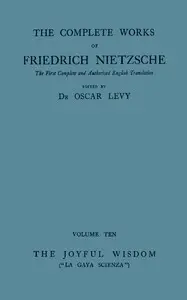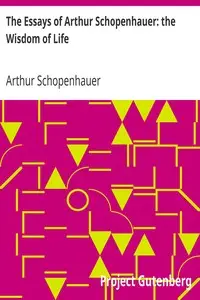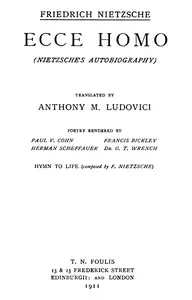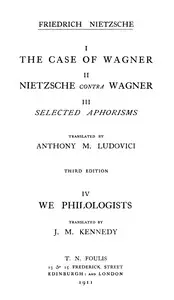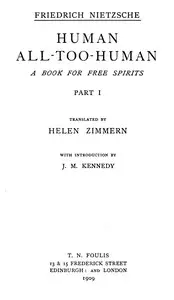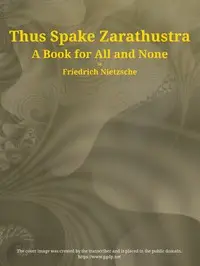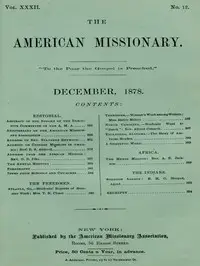"The Joyful Wisdom" by Friedrich Wilhelm Nietzsche is a philosophical exploration that seeks a path to happiness in the face of life's hardships. It examines the human experience through the lens of laughter and morality, challenging readers to question accepted ideas. The book starts by laying the foundation for understanding 'joyful wisdom' as a response to life’s difficulties, suggesting that true understanding can come from pain. Nietzsche encourages the questioning of established moral ideas and instead promotes a fresh view of life, one that includes both joy and sadness while using humor as a tool for navigating existence and preparing for an examination of beliefs about morality, suffering and happiness.
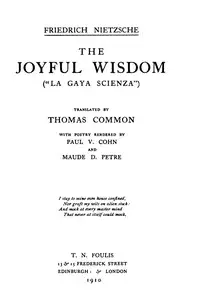
The Joyful Wisdom ("La Gaya Scienza") Complete Works, Volume Ten
By Friedrich Wilhelm Nietzsche
Discover a philosopher's provocative journey to find joy and wisdom amid life’s trials, questioning morality and embracing both laughter and sorrow.
Summary
About the AuthorFriedrich Wilhelm Nietzsche was a German classical scholar, philosopher, and critic of culture, who became one of the most influential of all modern thinkers. He began his career as a classical philologist before turning to philosophy. He became the youngest person to hold the Chair of Classical Philology at the University of Basel in Switzerland in 1869, at the age of 24, but resigned in 1879 due to health problems that plagued him most of his life; he completed much of his core writing in the following decade. In 1889, at age 44, he suffered a collapse and afterward a complete loss of his mental faculties, with paralysis and probably vascular dementia. He lived his remaining years in the care of his mother until her death in 1897, and then with his sister Elisabeth Förster-Nietzsche. Nietzsche died in 1900, after experiencing pneumonia and multiple strokes.
Friedrich Wilhelm Nietzsche was a German classical scholar, philosopher, and critic of culture, who became one of the most influential of all modern thinkers. He began his career as a classical philologist before turning to philosophy. He became the youngest person to hold the Chair of Classical Philology at the University of Basel in Switzerland in 1869, at the age of 24, but resigned in 1879 due to health problems that plagued him most of his life; he completed much of his core writing in the following decade. In 1889, at age 44, he suffered a collapse and afterward a complete loss of his mental faculties, with paralysis and probably vascular dementia. He lived his remaining years in the care of his mother until her death in 1897, and then with his sister Elisabeth Förster-Nietzsche. Nietzsche died in 1900, after experiencing pneumonia and multiple strokes.





